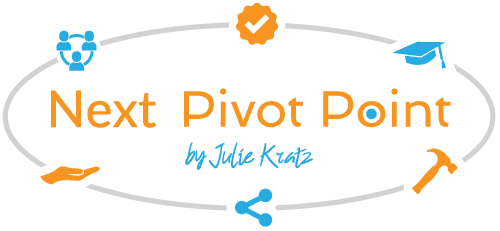The runway for diversity and inclusion taking off in your organization is getting shorter.
Gen Z has entered the workforce and they expect inclusive workplaces. If you thought those pesky millennials were wreaking havoc in the workplace (full disclaimer: I am one), the next generation that has begun entering the workforce, Gen Z, is already making waves.
Who is Gen Z?
While there still is no official name for them, Gen Z is a safe placeholder for this next generation in our workforce. We now have four generations in the workplace made of:
- Post-millennials or Gen Z were born 1997 to 2012
- Millennials were born 1981 to 1996
- Gen X were born 1965 to 1980
- Baby Boomers were born 1946 to 1964
With slowing retirement rates of Baby Boomers, this is unique. The US has never before had this diverse of a generational mix working together. And, it comes with its challenges. The experiences of each generation bring different workplace values. Our values are a collection of our experiences growing up and we bring those values to the workplace. I call them “coming of age” stories. Think back to your late teens and early 20’s – what were you doing? What did you value? I bet that shows up in your workplace values.
In general, due to their upbringings and experiences, Baby Boomers tend to value hard work and appreciate hierarchical structures, whereas Gen X appreciates independence and flexibility, Millennials desire feedback and praise and seek deeper value and purpose in their work.
Gen Z values diversity and inclusion
This is human. We are all a product of our collected experiences. It was different growing up in the 60’s vs. the 90’s or early 2000’s. This creates workplace diversity in values, and it is further reinforced by greater diversity of younger generations.
Gen Z is the most diverse generation yet
The Pew Research Center’s social and demographic trends show that “’post-millennials’ are on track to be most diverse, best-educated generation yet.” This is not entirely new. Each generation has been more diverse than the previous generations. However, with immigration hitting its peak in the US in 2005, this poses a fundamental shift – more US born diversity vs. immigrated diversity for future generations. In fact, Gen Z is projected to become majority nonwhite in 2026 according to the Census Bureau.
This has shifted how younger generations look at diversity. Because they are very likely to know and work closely with people that are of a different race, gender, and socioeconomic background, they see diversity as the norm. They grew up with people that were different than them and had different backgrounds and experiences to them, yet found common ground beyond those differences.
What do the younger generations want?
Gen Z expects diversity and inclusion and belonging in their workplace. They are highly selective of where they interview, asking about workplace values and philanthropy and accepting positions where they feel included and welcomed every single day. This is a far cry from the Baby Boomer world of chain of command leadership and paychecks being the ultimate reward. It likely feels puzzling to the older generations to expect so much from your workplace.
Values do not go away. They are baked into who we are. Trying to change the younger generations has not and will not work. They are far more likely to change us than workplaces are to change them.
If you are not working on diversity and inclusion, you are already behind
Diversity goes way beyond gender and race. Generational diversity may be what finally closes the gap on diversity and inclusion in the workplace. With now two generations welcoming diversity as they saw it to be normal in their own lives, they are expecting it at work. You will not attract top talent if you are not reflecting diversity at every level of your organization. This is not something you can simply flip the recruiting switch on either. It takes a full commitment, every single day. And, many organizations have been focused on this for years. If you are just now starting, the good news is that it is not too late, yet you have some catching up to do. It is never too late to be an ally for others and to truly support diversity.
Starting an ally journey requires courage and effective tools
Struggling with where to start your inclusive leadership journey as an organization? We have ideas. Join me on Lead Like an Ally to learn more about of our self paced online program designed to meet leaders and organizations where they are at on the journey.
Still have questions? Message me at Julie@NextPivotPoint.com. I respond personally to every message I receive.

